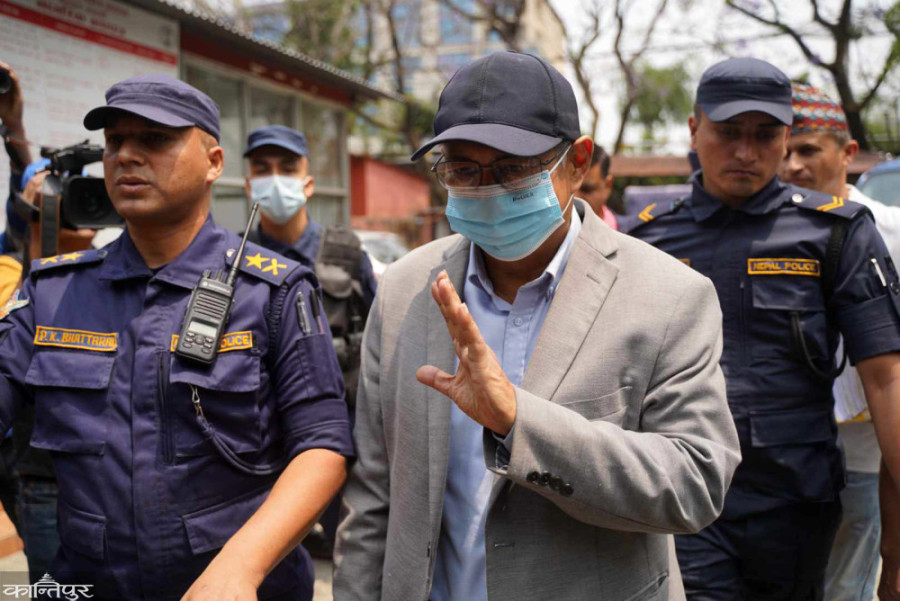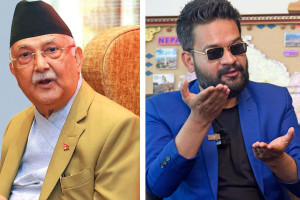Columns
Of scammers and experts
The role of experts in the highest levels of government has been revealed completely.
Deepak Thapa
Despite all encouraging portents so far, it is anyone’s guess how the fake Bhutanese refugee scam will find its denouement. Filtering through all the noise though, there were three issues that have stood out for me.
The first is the confidence with which the scammers cooked up a scheme out of thin air. Resettlement of the Bhutanese refugees the first time around took years and years of negotiations and planning, and the United Nations refugee agency has made it clear nothing similar is in the offing for the 6,000-odd refugees still in the camps. Yet, these criminals felt emboldened enough to go around collecting huge sums of money from hapless suckers sold on dreams of a life in the United States.
The second was the fact that these fraudsters could so easily find willing accomplices in the government regardless of who was in power. All the drama of KP Sharma Oli’s dissolution of Parliament two times over and a change of government did little to upend their grand plans. They appear to have simply put their best foot forward and marched on with new partners in tow, and that says a lot about where the interests of our rulers lie.
Experts with an agenda
Perhaps most revealing has been the place of experts in the highest levels of government. The taskforce set up seemingly without rhyme or reason to look into the issue of the remaining refugees included someone with no relevant expertise whatsoever. Ganesh Bahadur KC was a retired school teacher who just happened to be a neighbour of one of the masterminds of the refugee scam. By his own admission, that was the sole qualification for his being appointed to the taskforce. And, yet, he agreed to serve, and the government duly endorsed the choice of someone who had no business making recommendations.
Even more unnerving is the case of Indrajit Rai, security adviser to the then home minister. Why, instead of the international practice of having an overall national security adviser, such a position at the Home Ministry was even thought necessary beat reason even then. Allusions have been made but it is so far not clear if Rai’s appointment was for the sole purpose of perpetrating the refugee scam. That Rai was the one who reportedly skimmed off the highest amount among all the alleged crooks—Rs 55 million—that seems entirely plausible though.
As to who Rai actually is remains quite a mystery. He came into the limelight around the time of the 2006 political change, and soon assumed the authority of a security specialist. According to a news report, having spent most of his life in India, he was invited to Nepal by someone in the royal family and began teaching at the Nepali Military Academy. That association, however, seems to have ended a while ago. It could have been because he had begun cosying up to the Maoists, then the Nepali Army’s bête noire, or it could have been, as the army spokesperson said, because suspicions were raised about his PhD degree. Not that it prevented him from appropriating the title of “Professor Doctor” even if the university that granted him professorship remains unknown.
A Google search turns up only one article authored by Rai. The rather shoddily put together article in an edited volume contains zero citations—probably because it was also heavily plagiarised. The fact of plagiarism by itself does not discount his PhD since we have seen worse. Nowhere is there any reference to where he got his doctorate from and on what subject. Yet, until a few weeks ago, he was strutting around as a security expert, with no questions asked, not even by the army which now claims to have had doubts all along.
Of experts and the populace
It is this ingrained credentialism in Nepal that Rai was able to exploit to the hilt—to the detriment of the nation as a whole. Blind faith in credentials can be insidious in other ways as well.
Before the fake refugee scandal erupted and sucked the air out of all other news, the Nepali mediascape was hit by the resignation of Harvard-educated Swarnim Wagle from the Nepali Congress over claims of not being given his due by the coterie surrounding Sher Bahadur Deuba. Like Pranaya Rana of the highly readable newsletter Off the Record, I was quite taken aback by how that development was greeted by both the traditional and social media. As he put it, “[S]o many on Twitter seem to believe that he is the end-all-be-all when it comes to economists and if he doesn’t become the next Finance Minister then the country is going to go bust.”
Having no claims to understanding the first thing about economics, I can be no judge of Wagle’s calibre as an economist. That, however, is not the point I am making here. It is the blind adulation that is frightening.
Take this example from a decade-old episode of the Al Jazeera programme, “Inside Story Americas”, that appeared among my YouTube recommendations around the time Wagle was elected Member of Parliament. It featured, among others, Wagle. As one of the authors of the Human Development Report 2013 titled The Rise of the South: Human Progress in a Diverse World, he had been invited to explain elements of the report in the context of what the United States was undergoing then.
Wagle certainly was not a washout. Given the format of the programme, neither was his a spectacular performance. Yet, those Nepalis who had just discovered the video went berserk: “What a[n] amazing speech of Swarnim Wagle Sir!”; “Wow! it’s the moment of pride for us”; “I am very happy when the news of Dr Swarnim Wagle sir is broadcasted by a big country in the world”; “Proud to get such talented economist as a parliament member of our country”; “Wow I’m so proud to be Nepalese”; etc, etc. All that joyous abandon for the man having simply provided a run-of-the-mill definition of the human development index and explaining a variation of the “leave no one behind” thesis. It seemed that Wagle’s appearance on an international TV channel and, more importantly, speaking fluent English was enough to send folks into paroxysms of delight.
That is dangerous indeed. I surely hope Wagle is able to live up to the high expectations he has engendered. For, any sign of shortcoming and the same legion of fans will turn on him and look for some other saviour.
There is no shortage of the latter wannabes. Gaining prominence is the Rastriya Prajatantra Party (RPP), with their drama of taking an oath against engaging in corruption—from now on, I presume. What is amazing is the gall the RPP has to demand an investigation into the assets of all politicians and bureaucrats from the post-1990 period. Why stop at 1990 and not go back further to the Panchayat period as well when the rot had truly set? Of course, we know this is only a political stunt aimed at garnering public sympathy. The danger is such appeals could easily resonate with the disenchanted majority of Nepalis and even result in the backsliding of our still-nascent democracy.
The manner in which the Bhutanese refugee scam ends can either feed the frustration further or renew trust in our democratic institutions. The ball is now squarely in the court of the triumvirate of Prachanda, Deuba and Oli. One just hopes they are aware of that.




 10.12°C Kathmandu
10.12°C Kathmandu















